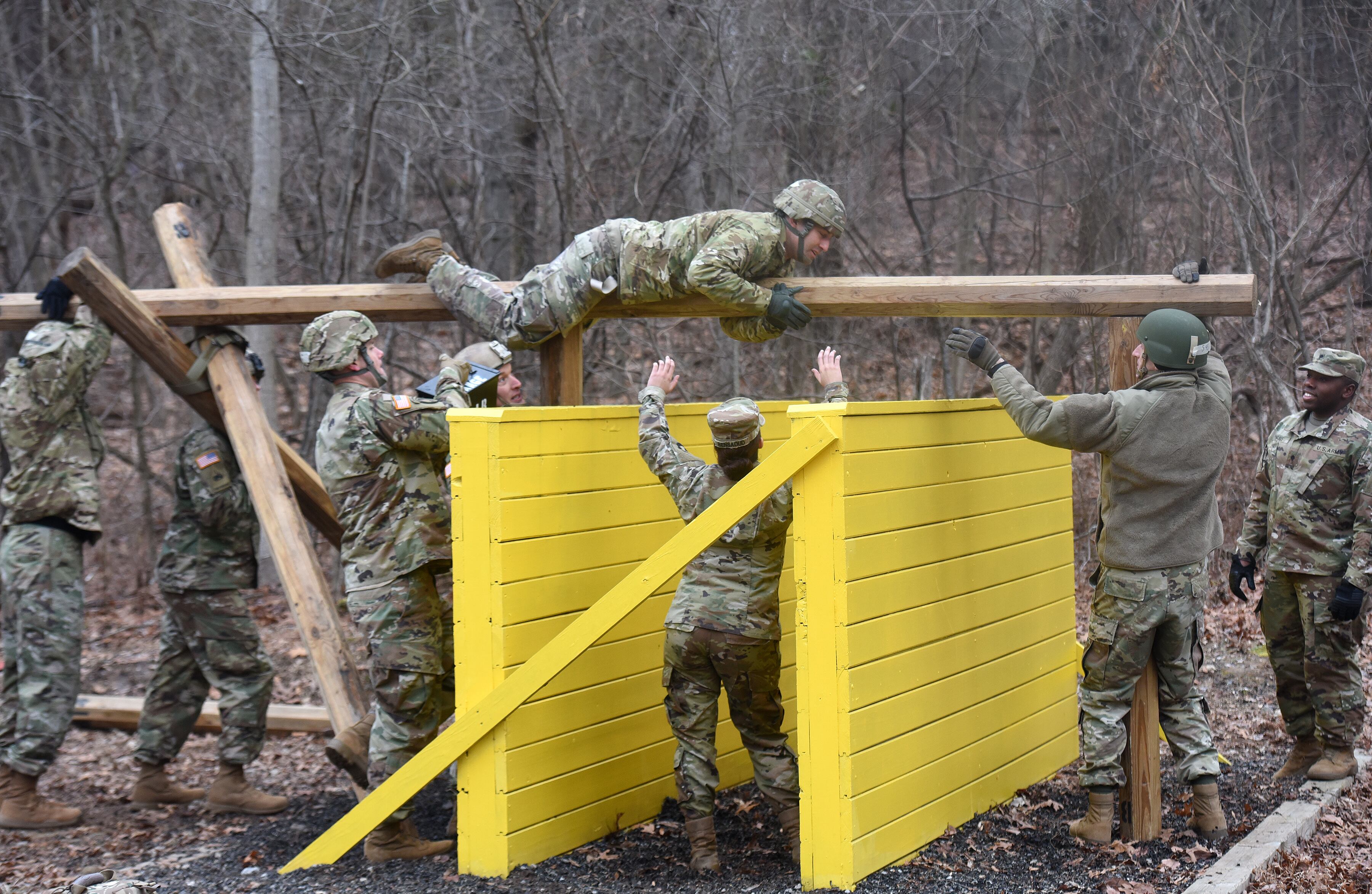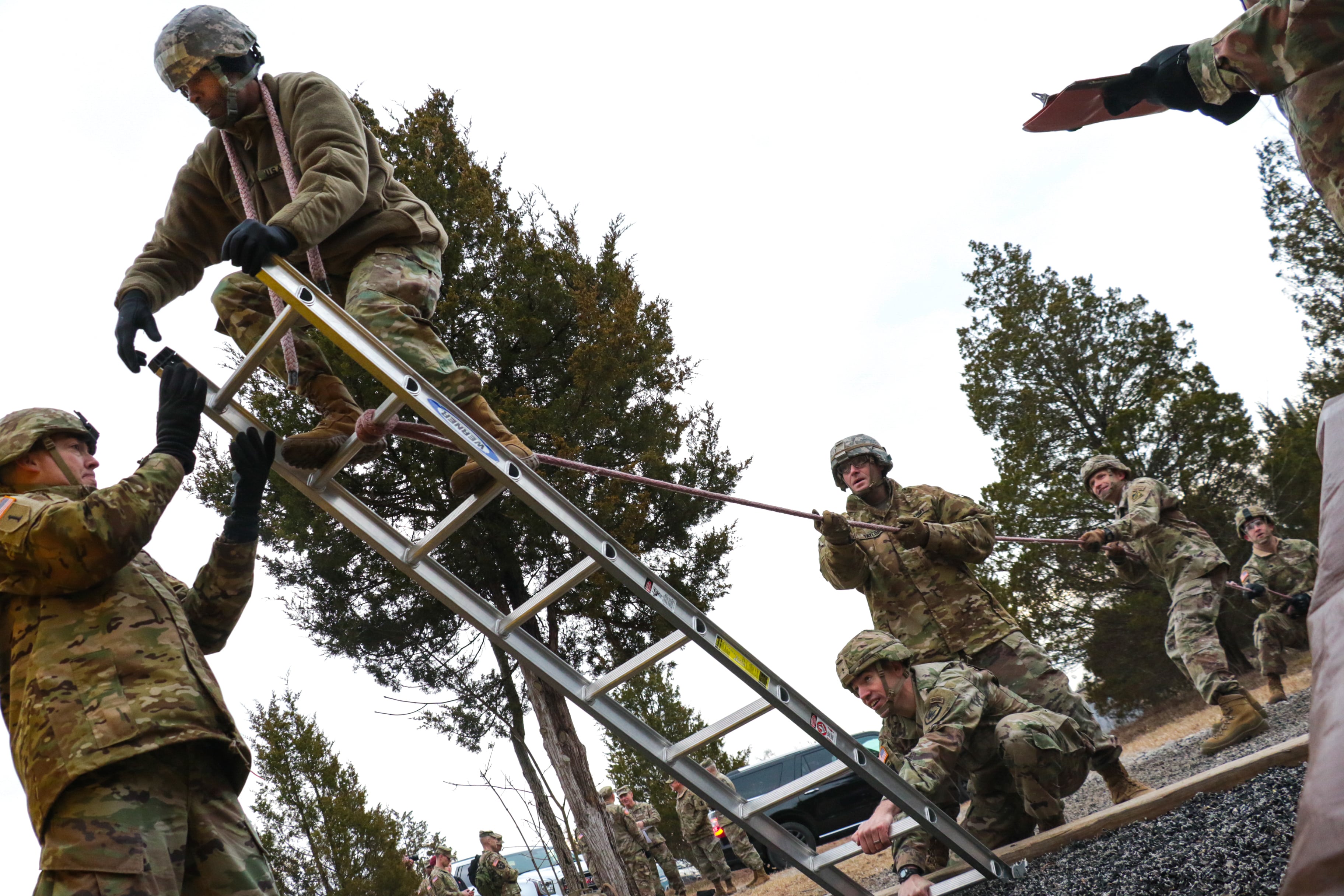The Army is exploring how to test and screen its command sergeants major in ways that mirror the new Battalion Commander Assessment Program, but it would be a few years before the potential changes were made.
Sergeant Major of the Army Michael Grinston plans to discuss the initiative this April with enlisted leaders who spent January and early February sitting in on blind boards, alongside general officers, during a series of battalion commander assessments at Fort Knox, Kentucky.
“Each panel has a senior sergeant major,” Grinston said. “Those are the ones sitting on the panels. I’m going to get their feedback, because they’re there for the whole cycle.”
Grinston spent a day at the new assessment in late January as well, and he liked what he saw.
“I was kind of excited about the whole program," he said. "I really liked the cognitive and non-cognitive assessment and the outcomes of that.”
The new program, called BCAP, includes tests for cognitive skills that measure conscious intellectual effort, like memory and reasoning, as well as non-cognitive traits, such as integrity, interpersonal interaction and motivation.
It’s all designed to determine a lieutenant colonel’s fitness for commanding a battalion — one of the “the most consequential leaders in the Army,” said Army Chief of Staff Gen. James McConville in late January. Battalion commanders are crucial in determining whether subordinate soldiers will want to continue to serve or not, according to McConville.

Before BCAP, a board of 25 officers would review 1,000 or more applications with only a few minutes spent on each applicant.
Now, participants spend five days being tested on written and verbal communication, interviewing with behavioral psychologists, and submitting to anonymous panel interviews with senior Army officers, during which an applicant’s personally identifiable information is redacted. The program also collects peer and subordinate assessments for each candidate going back five years.
“I looked at the assessment and I thought it was very well done,” Grinston said. “I wouldn’t say we would shift away from that. ... I couldn’t see us going way off from that in my opinion.”
Enlisted soldiers are prepared for panels, Grinston added, noting that he was “boarded” as an E-5 and an E-6.
“That is the one thing, I think, for the enlisted that we’re kind of accustomed to,” Grinston said. “Even though it’s a blind assessment, it’s still somebody asking you questions and you are required to do a response."
“So my biggest exciting part was the cognitive and non-cognitive assessment and then how does that play in the overall assessment, because that’s one thing that I haven’t seen us actually do on the enlisted side,” he added.
The Army wouldn’t see a new assessment program for command sergeants major rolled out until 2022 at the earliest, Grinston said, though there would likely be a pilot program started before then. Some details that still need to be discussed include resources.
BCAP leans heavily on psychologists, for instance, so ensuring those professionals would be available for another large assessment program could prove difficult.
Grinston also directed his senior enlisted council to look into the turnover rate for command sergeants major, which could impact how often those enlisted leaders need to be assessed.
“Is the turnover for CSMs more than battalion commanders?" he asked. "If that’s the case, [and] if we’re going to do an assessment, then we’d have more cycles of the assessment. That’s one of the things we have to work out when we meet in April.”
Kyle Rempfer was an editor and reporter who has covered combat operations, criminal cases, foreign military assistance and training accidents. Before entering journalism, Kyle served in U.S. Air Force Special Tactics and deployed in 2014 to Paktika Province, Afghanistan, and Baghdad, Iraq.





